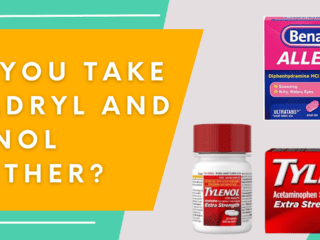As is the case with any other medication, there may be some instances where clobetasol propionate use is not recommended or usage will have to be adjusted in order to prevent or reduce the risk of negative interactions occurring from other drugs, medical conditions, or even food and drink.
Drug Interactions
According to the FDA, drugs that may interact with clobetasol propionate include the following.
- No contraindications listed (Clobex lotion, 0.05%)
- No major drug interactions listed (Temovate cream, 0.05%)
Please note that this list may not be complete, and other interactions with drugs not listed here may occur.
Clobetasol Propionate and Gentamicin Skin Cream
There are some creams available that use a combination of clobetasol propionate and the antibiotic gentamicin (Gentak, Garamycin). Patients should not use clobetasol in any way that is not under the supervision of a doctor.
Clobetasol Propionate and Salicylic Acid Lotion
Some products combine these ingredients; salicylic acid is a common ingredient in skincare products since it can increase skin moisture, help shed dead skin, and decrease redness and inflammation. Patients should follow their doctor’s directions when taking clobetasol.
Clobetasol Propionate and Neomycin Sulfate Cream
There are products available that combine neomycin sulfate, an antibiotic, and clobetasol propionate. Patients should only use clobetasol as directed by their physician.
Clobetasol Propionate and Ketoconazole
Limited research suggests that using clobetasol propionate shampoo (0.05%) in combination therapy with ketoconazole shampoo (2%) produces more desirable results than monotherapy in patients with moderate to severe cases of seborrhoeic dermatitis of the scalp. Ketoconazole (Xolegel, Nizoral A-D, Nizoral) is a fungus-killing medication that, when applied topically, can treat areas of the skin affected by seborrhoeic dermatitis.
Clobetasol Propionate and Fusidic Acid Cream
Creams that combine these two ingredients are available for the treatment of conditions like eczema. It should not be used in any way other than how a doctor prescribes it. Fusidic acid is an antibiotic (available in topical cream, eyedrops, pills, or injections) to treat skin infections caused by bacteria.
Clobetasol Propionate and Benadryl (Diphenhydramine)
There are no reported interactions between these two medications.
Food Interactions
Sometimes the foods we eat and the beverages we drink can also interact with our medications. Food and drink that may interact with clobetasol propionate include:
- No contraindications listed (Clobex lotion, 0.05%)
- No major food interactions listed (Temovate cream, 0.05%)
Please note that this list may not be complete, and there may be other foods and beverages that interact with this drug.
Clobetasol Propionate and Alcohol
For more information, please visit our page on clobetasol propionate and alcohol interactions.
Disease & Conditions Interactions
Sometimes certain medications can increase the risk of negative side effects for patients with certain diseases or other medical conditions.
According to the FDA, diseases and medical conditions that are known to negatively interact with clobetasol propionate include:
- No contraindications listed (Clobex lotion, 0.05%)
- Those with a hypersensitivity to this drug or any of its components (Temovate cream, 0.05%)
Please note that this list may not be complete, and there may be other diseases and medical conditions where patients should not take this medication. For example, doctors do not typically recommend this medication to treat:
- Fungal lesions
- Tubercular lesions
- Viral lesions
- Use in the eyes
Clobetasol Propionate and Pregnancy
For more information, please visit our page on clobetasol propionate and pregnancy risks.
Clobetasol Propionate and Poison Ivy
This medication is indicated (recommended) for the treatment of several skin conditions, including contact dermatitis, or irritated skin that results from something coming into contact with the skin. Poison oak and poison ivy are both common forms of contact dermatitis that this medication may treat, so long as it is not applied to open wounds or atrophied areas.
Clobetasol Propionate and Shingles
This medication should not be used to treat viral infections of the skin, like shingles (herpes zoster).
Temovate/Clobetasol and High Blood Sugar
When combined with other medications, clobetasol propionate may increase the risk of high blood sugar (hyperglycemia).
Vitiligo and Temovate
Vitiligo is a medical condition where the skin loses pigmentation, appearing as affected patches at various points on the body.
Research has found that clobetasol propionate (the primary active ingredient in Temovate) can be an effective treatment for vitiligo when used intermittently. For those who cannot use clobetasol propionate, a small study found that 1% pimecrolimus ointment was as effective in treating this condition as clobetasol propionate.
Clobex and Seborrheic Dermatitis
Clobex (0.05% clobetasol propionate shampoo) may help patients with seborrheic dermatitis of the scalp, especially when used with alternating ketoconazole (2% shampoo) therapy.
Clobex Spray and Guttate Psoriasis
Clobex spray (clobetasol propionate, 0.05%) is only indicated for the treatment of moderate to severe cases of plaque psoriasis in adults.
Guttate psoriasis is not as common as plaque psoriasis. Although, about 8% of people with psoriasis develop this form of the condition, according to the National Psoriasis Foundation. This form of psoriasis is characterized by small, raised, roundish papules that can sometimes look scaly. Often appearing in childhood or young adulthood, it may appear after a strep throat infection.
NOTE: Brand names of this medications listed on this page do also represent clobetasol itself.
Disclaimer: this article does not constitute or replace medical advice. If you have an emergency or a serious medical question, please contact a medical professional or call 911 immediately. To see our full medical disclaimer, visit our Terms of Use page.





